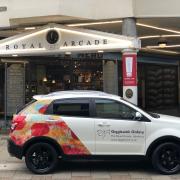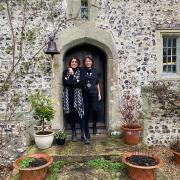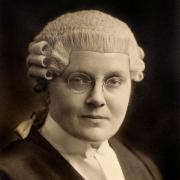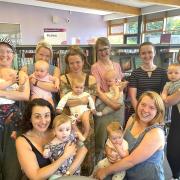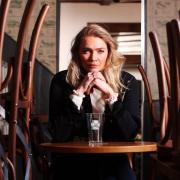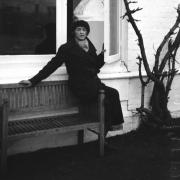A charity set up to educate the public about laying hen welfare celebrates its 10th anniversary this year.
The British Hen Welfare Trust, best known for its re-homing initiative, has found pet homes for over 450,000 commercial laying hens destined for slaughter since it was established in 2005. Jane Howorth, the Trust’s Founder, was moved by a Panorama documentary in 1977 which illustrated the stark conditions inside battery cages, and she is delighted to have reached this first milestone birthday: “I am thrilled to be celebrating our tenth anniversary, and more importantly to have found homes for so many hens and introduced people to the joys of keeping our lovely ex-bats. Of course we could not have achieved this without our wonderful team of 300+ volunteers around the UK; they have worked so hard to help so many hens.”
The charity which boasts many well-known Patrons including Jamie Oliver, Amanda Holden, Antony Cotton and Kate Humble, puts its success down to its pragmatic approach towards the egg industry and the warm support received from the public. The charity’s level-headed stance was highlighted when Jane was placed in the top 100 in a Country Life ranking of people with most influence on those who live in the countryside in 2009, coming just two places behind David Cameron.
Jane commented: “Of course we could not have reached this point without the trust of the farmers who let us take their birds. I am particularly proud of our relationship with the egg industry, it has taken time to build trust, but I believe farmers now understand that we, too, want to see a strong and successful UK egg industry that values high welfare.”
As well as finding homes for hens, the charity educates the public on how they can make a difference to hen welfare through their shopping basket and encourages people to check the food labels. Increased consumer awareness has led to big names switching policy to free range eggs, such as Marks & Spencer who led the way in 2002 and Hellmanns who started using free range eggs in their ubiquitous mayonnaise from 2011. Policy changes such as these have improved the quality of life for tens of thousands of hens and continues to do so; consumer clout at its most powerful according to the charity.
Jane confirmed: “I have long believed in the power of the consumer and whilst consumers will often choose to buy free range eggs to use in cooking, they are unaware of how many eggs are used in processed food products. It is gratifying to see how gradual policy switch amongst major retailers and food manufacturers is resulting in increased use of free range eggs. Even through recession free range egg sales have largely held their own.”
The charity has a simple concept in trying to increase awareness of hen welfare and through its adoption scheme has been able to illustrate that once consumers directly connect food and welfare through the hens, this heavily influences their shopping habits. A recent survey conducted by the charity, showed that of those adopting hens 92% said they had tried to influence friends/family to buy free range eggs, and 81% regularly looked at food labels. Interestingly 98% commented that they would like to see extra labelling on production methods. (Source: British Hen Welfare Trust Henus 2014).
The British Hen Welfare Trust produces an informative and fun magazine publication, Chicken & Egg, designed to appeal to those who enjoy keeping hens as well as to a broader audience of foodies for whom high welfare is important. The magazine includes a mix of news stories, information, recipes and special features with major retailers and celebrity interviews, and has a circulation of c. 45,000.
As well as creating a new trend for hen keeping, the charity also considers another feather in its cap the part it has played in helping to facilitate better veterinary diagnosis and treatment of backyard flocks through working with global poultry veterinary specialists, St David’s Poultry. Training for vets on poultry now regularly takes place as a result. The charity also recently provided the Royal College of Veterinary Surgeons with valuable input to enable backyard poultry be included in the standard curriculum for trainee vets for the first time.
The British Hen Welfare Trust hopes to celebrate its milestone birthday year with the arrival of a very special 500,000th lucky hen called Dee (‘D’ is 500,000 in roman numerals). Dubbed ‘Dee Day’ the countdown begins now as the British Hen Welfare Trust needs to find homes for over 50,000 hens this year.
There is always something eggciting going on at the British Hen Welfare Trust, to read latest news, find out about fundraising or where re-homing’s are taking place across the country visit www.bhwt.org.uk, www.facebook.com/britishhenwelfaretrust or Twitter @BHWTofficial
***
READ ON
• Sussex venison is back says food writer Christopher Archambault - Healthy and local, venison is back in vogue. Chef and food writer Christopher Archambault gives us the skinny.
• Where to catch, buy and eat seafood in Hastings - Hastings is famed for its fantastic fish, and with good reason. Alice Cooke shows you how and where to catch, buy and eat the most scrumptious seafood that the town has to offer.
• 20 best pubs in Sussex to visit this winter - What could be nicer than a sleepy Sunday afternoon in one of our beautiful Sussex pubs? Here are some of our favourites...








